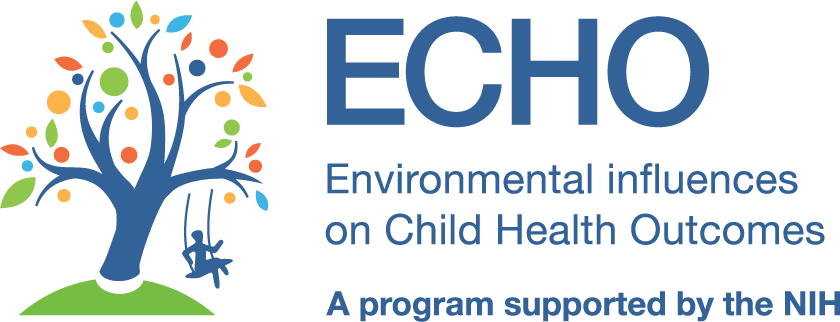Environmental Influences on Child Health Outcomes (ECHO)
Researchers are conducting a long-term study to follow children from before birth to 21 years of age. Help us learn more about how the environment and genes interact to affect children’s health and development.
Fast Facts

Less than 20 Weeks Pregnant

Compensation Provided

Conducted in Utah
Study Background
ECHO is a nationwide research program that investigates how the environment and genes interact to affect children’s health and development.
The goal of the Environmental influences on Child Health outcomes (ECHO) Program is to understand the effects of a broad range of early environmental influences on child health and development. ECHO is dedicated to both learning what factors affect child health and finding ways to enhance it. The ECHO Program is supported by the National Institutes of Health.
ECHO is a long-term observational study that follows people through pregnancy and then their children until 21 years of age.
The (ECHO) Program is looking to recruit participants including those from diverse racial and ethnic populations who have been historically underrepresented in research.
ECHO aims to:
- Enhance the health of children and adolescents through research that may help inform healthcare practices, programs, and policies.
- Create a culture that helps teams of child health researchers work together to achieve the best results.
ECHO’s mission is to enhance the health of children for generations to come. Learn more at echochildren.org.

Study Background
ECHO is a nationwide research program that investigates how the environment and genes interact to affect children’s health and development.

The goal of the Environmental influences on Child Health outcomes (ECHO) Program is to understand the effects of a broad range of early environmental influences on child health and development. ECHO is dedicated to both learning what factors affect child health and finding ways to enhance it. The ECHO Program is supported by the National Institutes of Health.
ECHO is a long-term observational study that follows people through pregnancy and then their children until 21 years of age.
The (ECHO) Program is looking to recruit participants including those from diverse racial and ethnic populations who have been historically underrepresented in research.
ECHO aims to:
- Enhance the health of children and adolescents through research that may help inform healthcare practices, programs, and policies.
- Create a culture that helps teams of child health researchers work together to achieve the best results.
ECHO’s mission is to enhance the health of children for generations to come. Learn more at echochildren.org.

Additional Information
The ECHO program studies five key pediatric outcomes that have a high public health impact: pre-, peri- and postnatal (pregnancy and birth) experiences, lung and airway health/development, obesity and body weight, brain development, and positive health and well-being in children. Data we collect in ECHO may help us learn how we can improve the lives of children for years to come.
You may qualify for a study if you meet the following criteria.
Inclusion Criteria:
- Less than 20 weeks pregnant
- English or Spanish speaking
- Able to attend some clinic visits near the University of Utah or Utah State University
Participation may involve two brief study visits during pregnancy, involving biological sample collection, surveys, wearable activity and sleep devices. It may also include sample collections at birth. Study activities will continue about once per year for children from birth through age 21.
Yes, compensation is provided for completing study surveys, measurements, assessments, and providing biological samples.
There is no cost for you to participate in our research study.

